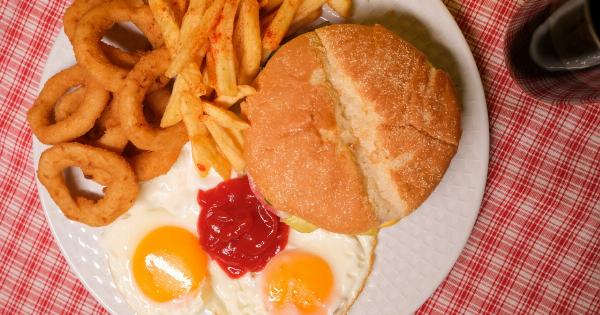Obesity rates in the United States have been on the rise in recent years, leading to a number of health concerns such as heart disease, diabetes, and certain types of cancers.
In an effort to combat this epidemic, the food industry has been under increasing pressure to provide healthier options to consumers. One approach that has gained significant attention is the reduction of calories in grocery products.
A recent study has revealed that the absence of 1.5 trillion calories from US grocery products could have a profound impact on the health and well-being of the population.
The Calorie Reduction Initiative
The initiative to reduce calories in US grocery products began several years ago when health experts and policymakers recognized the need to curb the rising obesity rates.
The aim was not only to promote healthier eating habits but also to create an environment in which individuals could easily make healthier choices. The approach was multi-faceted, involving collaboration between food manufacturers, retailers, and government agencies.
Focusing on a wide range of products including snacks, beverages, and packaged meals, the calorie reduction initiative aimed to decrease the total number of calories per serving without compromising taste or convenience.
This was achieved through various methods such as reformulating recipes, reducing portion sizes, and introducing new lower-calorie options.
The Impact of Calorie Reduction
The results of this initiative have been nothing short of impressive. The absence of 1.5 trillion calories from US grocery products means that consumers are now exposed to significantly fewer calories while grocery shopping.
This reduction in caloric intake has the potential to have a far-reaching impact on public health.
Improved Weight Management
One of the most obvious benefits of the absence of 1.5 trillion calories from US grocery products is the potential for improved weight management.
By reducing the number of calories consumed on a regular basis, individuals are more likely to maintain a healthy weight or achieve weight loss goals. This is especially crucial considering the link between obesity and various chronic diseases.
Reduced Risk of Chronic Diseases
Obesity is a major risk factor for a range of chronic diseases, including heart disease, stroke, type 2 diabetes, and certain types of cancers.
By reducing the number of calories in grocery products, the risk of developing these diseases can significantly decrease. This not only improves individual health but also reduces the burden on healthcare systems and society as a whole.
Greater Nutritional Value
Besides the reduction in calories, the calorie reduction initiative also aimed to enhance the nutritional value of grocery products.
This means that the foods now available on store shelves not only contain fewer calories but also provide a better balance of essential nutrients. By making healthier options more accessible, the initiative promotes improved overall dietary habits.
Positive Environmental Impact
The absence of 1.5 trillion calories from US grocery products has additional benefits beyond individual health. The reduction in calories also leads to a decrease in the demand for resources used in food production. This includes water, energy, and land.
By reducing the environmental impact of the food industry, the initiative aligns with sustainability goals and promotes a more eco-friendly approach to food consumption.
Public Perception and Education
An important aspect of the calorie reduction initiative is public perception and education.
By creating awareness around the importance of healthier eating habits and showcasing the positive impact of the initiative, consumers are more likely to make informed choices. Through marketing campaigns, educational programs, and labeling initiatives, individuals can feel empowered to select products that align with their health goals.
The Way Forward
While the absence of 1.5 trillion calories from US grocery products is a significant achievement, the work is far from over. Continuous efforts are needed to ensure that the momentum is sustained and even increased in the future.
This includes ongoing collaboration between all stakeholders, further innovation in product development, and staying abreast of emerging research in the field of nutrition and health.
By building on the success of the initial calorie reduction initiative, the food industry can continue to play a crucial role in promoting healthier eating habits and reducing the prevalence of obesity in the United States.
Together, we can strive for a future where the absence of calories leads to improved health outcomes and a more sustainable and resilient society.






























